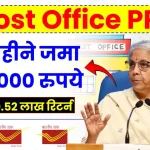
Financial Boost for Women Over 60: Women over 60 in the UK are set to benefit from a new financial boost, thanks to a significant move by HMRC and the Department for Work and Pensions (DWP) to rectify long-standing State Pension underpayments. This correction comes after years of administrative oversights, particularly involving the way Home Responsibilities Protection (HRP) was handled in National Insurance (NI) records.
This latest initiative has far-reaching implications—not just for retirees but also for their families and future pensioners. If you or someone you know is a woman over 60 who claimed Child Benefit before May 2000, it’s time to take notice. This article breaks down what this means, why it matters, and exactly how you can benefit.
Financial Boost for Women Over 60
| Topic | Details |
|---|---|
| Who qualifies | Women over 60 who claimed Child Benefit before May 2000 |
| Issue | Home Responsibilities Protection (HRP) not properly recorded |
| Impact | Thousands may have underpaid State Pensions |
| Average payout | Varies; can be thousands in arrears |
| Government action | HMRC reviewing NI records, aiming to fix all by March 2027 |
| What to do | Check NI record, respond to letters from HMRC |
| Official link | HMRC State Pension Review |
The new financial boost for women over 60 is not a bonus or handout—it’s long-overdue financial justice. If you or a loved one could be affected, don’t delay. Taking the time to check your National Insurance record and contact HMRC could result in thousands of pounds in back payments and a more comfortable retirement.
The government is making progress, but awareness is key. Share this information with friends, family, and community groups. Many women are still unaware they’re owed money—and with just a few simple steps, they can claim what’s rightfully theirs.
What Is This Financial Boost All About?
This isn’t a new scheme or grant—it’s about correcting a historic error that has unfairly shortchanged thousands of women. Between the late 1970s and early 2000s, many mothers who took time off work to raise children received Child Benefit. However, due to flawed systems, these periods weren’t always properly credited under the HRP system, which was designed to protect pension rights.
The result? Gaps in National Insurance contribution records—leading to lower State Pensions. For many women, this error went unnoticed for decades. It’s only in recent years, after audit checks and advocacy by pension groups, that the government acknowledged the issue and promised to put things right.
How Did This Happen?
Prior to 2010, HRP was the main mechanism used to ensure that individuals—particularly women—who paused their careers to raise children did not face a pension penalty. But the HRP system was deeply flawed.
If your Child Benefit claim was not correctly matched to your National Insurance number, you did not receive the HRP credits to which you were entitled. This issue disproportionately impacted women who:
- Moved homes frequently,
- Changed their surnames (due to marriage or divorce),
- Had inconsistencies in paperwork,
- Or lacked proper guidance on the importance of linking their NI records.
In 2023, the DWP and HMRC launched a formal review of affected records. The review is expected to last until March 2027, though eligible individuals can begin the process themselves immediately.
Who Is Eligible For Financial Boost?
Eligibility primarily depends on three key factors:
- Age – You must be over 60.
- Child Benefit History – You claimed Child Benefit before May 2000.
- NI Gaps – Your National Insurance record has unexplained contribution gaps during child-rearing years.
While the issue mainly affects women born before 6 April 1953, it can also impact others depending on when they gave birth and claimed Child Benefit.
What Kind of Money Are We Talking About?
This isn’t small change. Government estimates indicate that more than 237,000 pensioners were underpaid, with total repayments expected to exceed £1 billion.
The size of the individual payout depends on how many years were uncredited. Some recipients have already received back payments of £5,000 to £15,000 or more. In addition to lump-sum arrears, affected women can also expect to see an increase in their weekly pension.
Example: Joan, 68, from Manchester, raised her children in the 1980s and early 1990s. Due to HRP issues, her pension was £35/week lower than it should have been. After a review, her records were corrected. She received a lump sum of £13,720 and now enjoys the full State Pension rate.
Example: Maya, 74, whose husband recently passed, found out she could also claim backdated pension arrears on his behalf. HMRC acknowledged the error and issued her £9,600 in underpayments within six weeks.
Step-by-Step Guide: What You Should Do
1. Check Your National Insurance Record
Visit the official NI Record Checker to see if you have missing years that coincide with the time you were raising children.
2. Review Your Child Benefit History
Look for old benefit statements or bank account transactions. If you’re unsure, you can contact HMRC directly to request your Child Benefit history.
3. Look Out for HMRC Correspondence
HMRC is sending out letters to those affected. But don’t rely solely on that—be proactive.
4. Call HMRC for Clarification
Reach out via 0300 200 3500. Prepare your NI number and personal information to speed up the inquiry process.
5. Submit Supporting Documents
If needed, provide evidence like Child Benefit award letters or birth certificates to assist HMRC in correcting your records.
6. Apply for Pension Credit
If you have low income, you may also be eligible for Pension Credit—a top-up benefit that many older women miss out on.
Other Support Available for Women Over 60
Women in this age group are often eligible for multiple forms of financial and lifestyle support beyond State Pension. Here are a few noteworthy examples:
- Winter Fuel Payment – Between £250 and £600 per winter.
- Cold Weather Payments – £25 per week during very cold spells.
- Free NHS prescriptions and eye tests – Automatically available from age 60.
- Council Tax Reduction – Based on your income level.
- Free bus pass – Once you reach the female State Pension age.
- Senior Railcard – Save up to 1/3 on rail fares.
Why This Matters: Tackling the Gender Pension Gap
This financial boost isn’t just about fixing an error—it’s about acknowledging a systemic failure that affected women disproportionately. Historically, women have taken on more unpaid caregiving responsibilities, which has resulted in lower pensions and retirement savings.
The failure to correctly record HRP credits has only widened this gap. Correcting this oversight is a move towards economic justice, ensuring that caring for children does not come at the cost of future financial security.
In a broader sense, this initiative sends a message: unpaid care work has value, and it should be reflected in how society compensates individuals in later life.
DWP Confirms £175 Support for Pensioners Facing Fuel Payment Gap: Are You Eligible?
DWP Benefits Increase 2025: Check Important Changes and What They Mean for UK Families!
FAQs About Financial Boost for Women Over 60
How do I know if I’m affected?
If you’re a woman over 60 who claimed Child Benefit between 1978 and 2000 and have gaps in your NI record, you could be eligible.
Can I apply on behalf of a deceased spouse or parent?
Yes. HMRC allows next of kin to file on behalf of deceased individuals who were underpaid. Contact them with necessary documents.
Will this change my current State Pension amount?
Yes. Once your record is updated, your weekly pension payments will increase to the accurate amount.
Do I need a financial adviser or solicitor?
Not necessarily. The process is designed to be straightforward. However, if you’re unsure or face complications, you may consult Citizens Advice or a pension specialist.
Is there a deadline?
HMRC plans to resolve all underpayments by March 2027, but the sooner you check, the sooner you can get paid.











